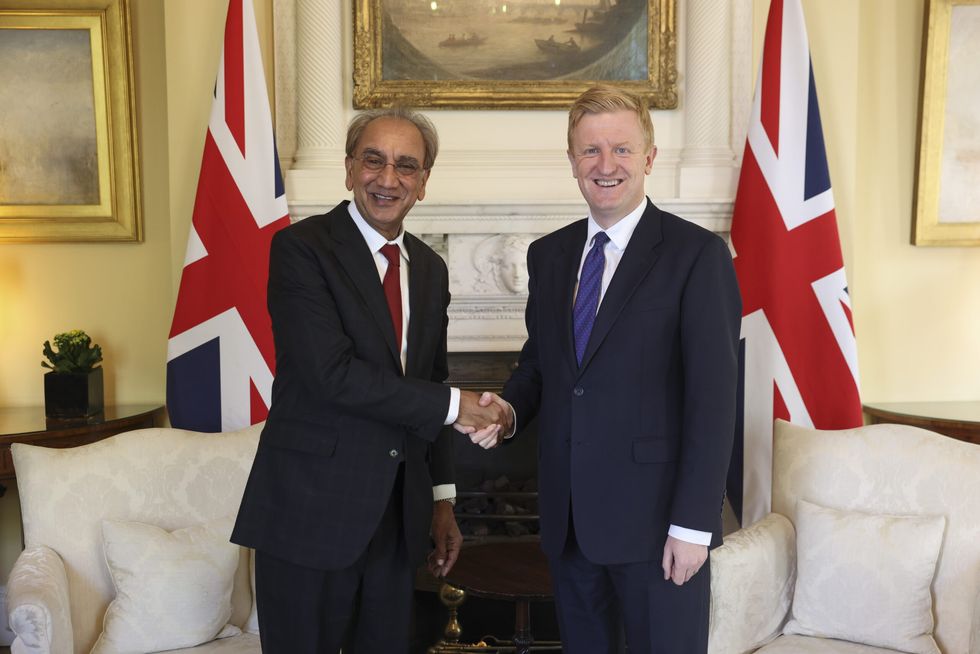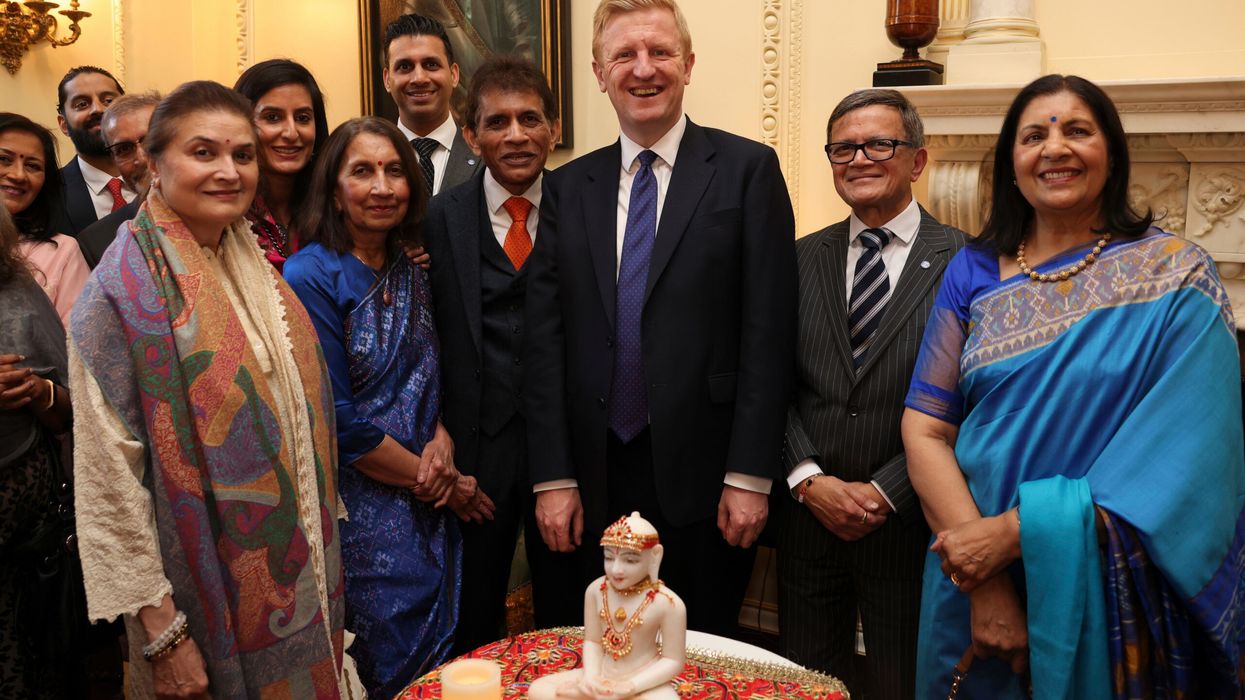DEPUTY prime minister Oliver Dowden paid tribute to the UK’s Jain community’s “service of others” as he hosted the first ever celebration of Mahavir Jayanti at Downing Street on Monday (29).
Dowden said he sees first-hand the work of the Jain community as his constituency of Hertsmere is the home of Oshwal Centre in Northaw, Hertfordshire.
The Oshwal Association of the UK (OAUK) represents the largest Jain community in the UK.
“I’m very proud of my role as the Member of Parliament for Hertsmere and one of the reasons I’m so proud of that role is because of the wonderfully diverse community that I represent and at the heart of that diverse kind of community is, of course, Jainism,” the deputy prime minister told the 150- strong gathering.
“I know from visiting my local Jain temples and meeting the members that put their own needs to one side in the service of others, whether it’s helping elderly members of the community or supporting local animal welfare charities.
“What shines through is that respect for every living being is at the centre of your values, your beliefs, and so should be at the centre of our values and our beliefs.”
Mahavir Jayanti marks the birth anniversary of the founder of Jainism or Mahavir Janma Kalyanak and is celebrated by the Jain community to observe peace, harmony and to spread the teachings of Mahavira, the 24th Tirthankara (supreme teacher) of Jainism.
“As we mark the day of Mahavir’s birth, it’s a moment to reflect on his many wise teachings on peace, on spirituality, preserving nature – these are teachings we can all learn from and live by,” said Dowden.

“Indeed, imagine how our world might be different for everyone if everyone, not just Jains, followed those principles.”
The event was attended by India’s High Commissioner Vikram Doraiswamy and leading figures within the Jain community, including BBC presenter Sonali Shah; Sigma Pharmaceuticals owners Bharat Shah, Manish Shah and Kamal Shah; Yogesh Mehta (Pickfords); Anant Shah (Meghraj Bank); Ketan Mehta (Necessity Supplies); Nishma Gosrani (partner at Bain & Co); Nemu Chandaria; Jaysukhbhai Mehta; and Vinodbhai Kapashi.
Dowden said, “This festival is also a moment to pay tribute to the tremendous contribution of British Jains across the United Kingdom, from all walks of life, from medicine to journalism to business. We have many such people represented here today – Sonali Shah from Escape to the Country. We’ve got Nikesh Mehta, our new high commissioner to Singapore, and brilliantly successful entrepreneurs like Shah and Yogesh Mehta. There are many, many more.
“Thank you all for finding the time to join us here today in Downing Street, it is truly an honour to host you. This may be the first, but I’m determined it will not be the last such event.”
Lord Dolar Popat, the UK trade envoy for Rwanda and Uganda, also lauded the achievements of the Jain community, saying the likes of Sigma Pharmaceuticals and Pickfords export over £200 million.
“You can imagine the size of export that takes place within the Jain community and this resonates with our Conservative value of hard work, education, and enterprise,” he added.




